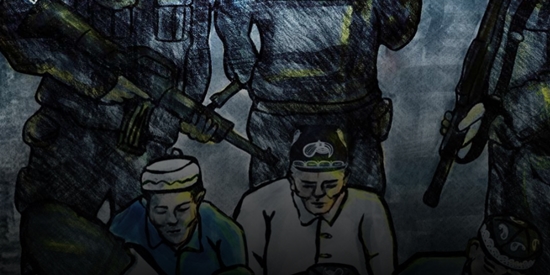
“Stand with us,” posted the East Turkistan National Movement, “in demanding an end to China’s relentless persecution, and join us in our call for justice, liberation, and the restoration of the East Turkish people’s dignity, faith, and independence.”
As Muslims celebrated Eid al-Adha, organizations that defend the rights “of Uyghur and Turkic Muslims in East Turkistan (the Xinjiang province of China)” called for global action to help them.
“On this sacred #EidAlAdha, we reflect on faith and resilience. We implore the global #Muslim community to stand with the #Uyghur/Turkic Muslims of occupied #EastTurkistan, who face genocide and are denied their faith,” the East Turkistan Government in Exile posted on Twitter. “Unite in prayer and action for their dignity and independence.”
Not all Muslims or governments of Muslim majority countries are as concerned about the plight of the Uyghurs. In a March 2022 story, Bradley Jardine reported for Time magazine that “The Arab World Isn’t Just Silent on China’s Crackdown on Uighurs. It’s Complicit.”
During a 2019 visit to China, Saudi Crown Prince Mohammed bin Salman, the country’s de facto ruler, told his hosts: “We respect and support China’s rights to take counter-terrorism and de-extremism measures to safeguard national security.” Saudi Arabia further endorsed China’s Xinjiang policies in two joint letters to the United Nations in 2019 and 2020.
But Arab states are not only lending rhetorical support to China, they are also actively assisting Beijing in its global campaign of abuse and reprisals against Uighurs. At least six governments in the Arab world—Egypt, Morocco, Qatar, Saudi Arabia, Syria, and the UAE—have detained or extradited Uighurs at China’s behest. According to our dataset at the Oxus Society for Central Asian Affairs, around 292 Uighurs have been detained or deported from Arab states at China’s behest since 2002.
The majority of these occurred in recent years. China’s repressive practices against the Uighur diaspora have expanded dramatically since Chinese President Xi Jinping unleashed his “people’s war on terror” in 2014.
Jardine tells what happened to Idris Hasan (aka Aishan Yideresi), detained in Morocco in 2021 after fleeing Turkey.
Hasan “was arrested on July 19 at Casablanca Airport and sent to a prison near Tiflet after China issued an Interpol Red Notice on false charges of terrorism against the Uighur activist. Interpol suspended the Red Notice on August 2021, but Moroccan courts proceeded to try Hasan according to an extradition treaty signed with China in 2016—part of a strategic partnership agreement between the two countries that included economic and financial investments.”
In 2017, Egyptian police “rounded up over 200 Uighur residents from their homes, restaurants, mosques, and even airports as they tried to flee the country…. A large number were taken to Tora, the notorious ‘Scorpion Prison,’ where Egyptian political prisoners are usually sent. Our interviews with detainees reveal that Chinese intelligence officers interrogated Uyghurs within these facilities alongside their Egyptian counterparts.”
Jardine is coauthor of a report published by the Uyghur Human Rights Project and the Oxus Society for Central Asian Affairs that “assesses China’s efforts to target Uyghurs in a region they once considered safe: the Arab world” and offers recommendations to combat this repression.
Also see:
UHRP.org: “Beyond Silence: Collaboration Between Arab States and China in the Transnational Repression of Uyghurs”





